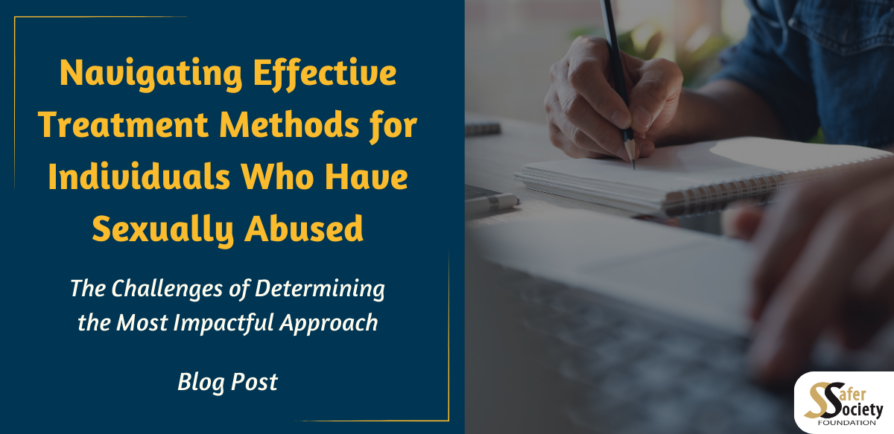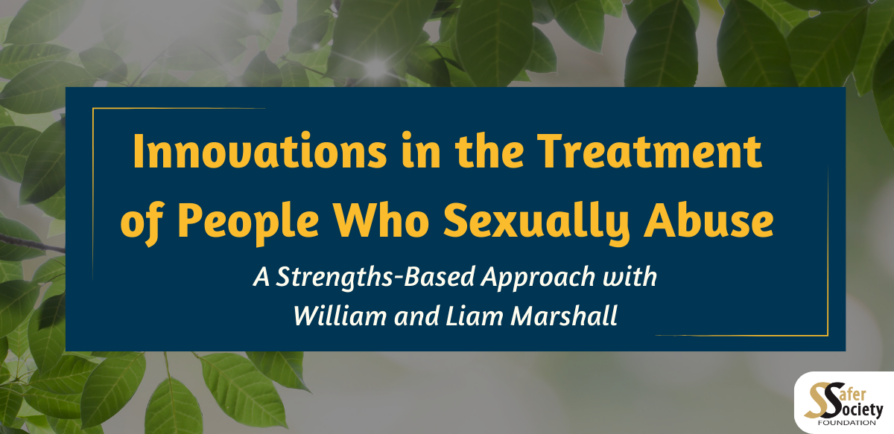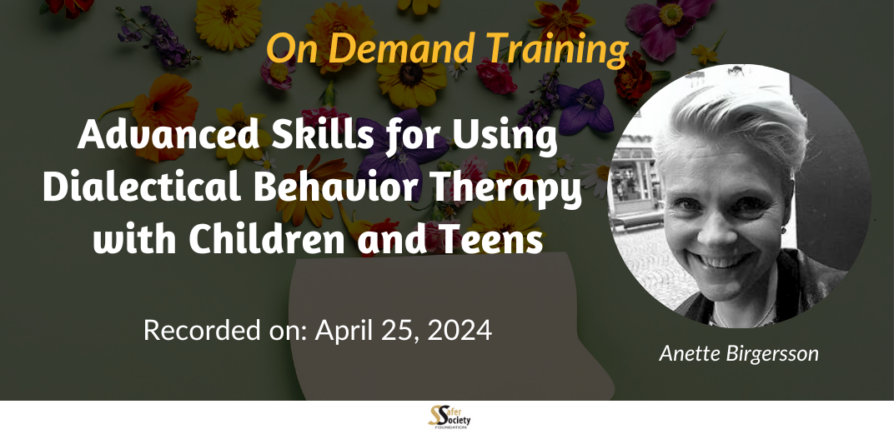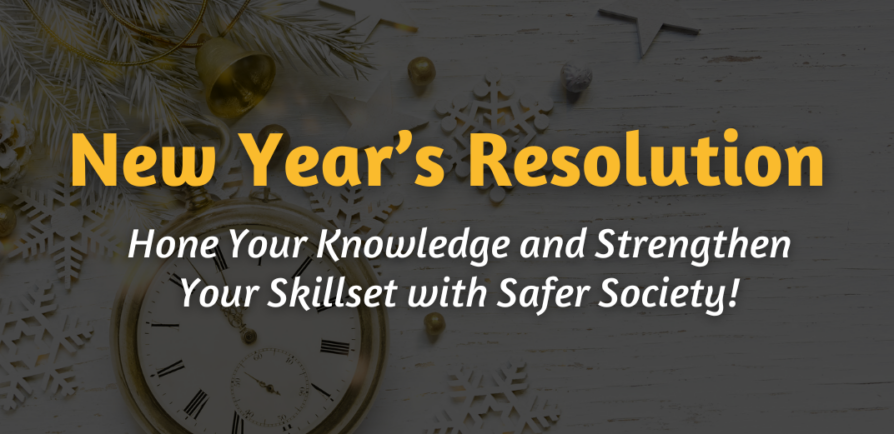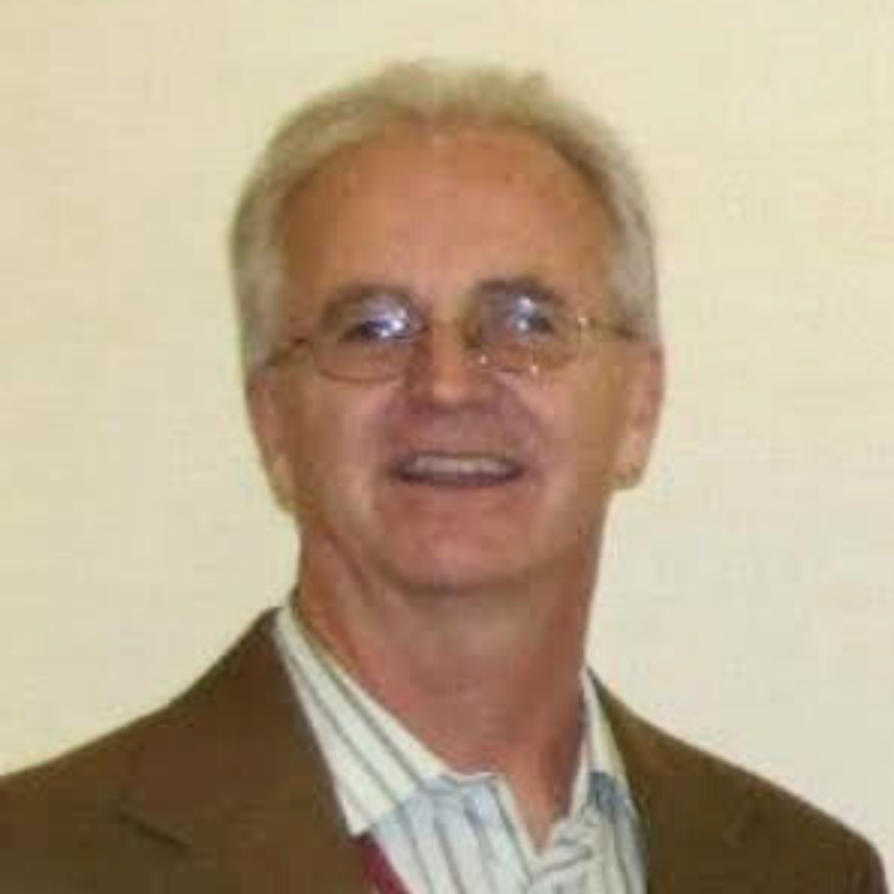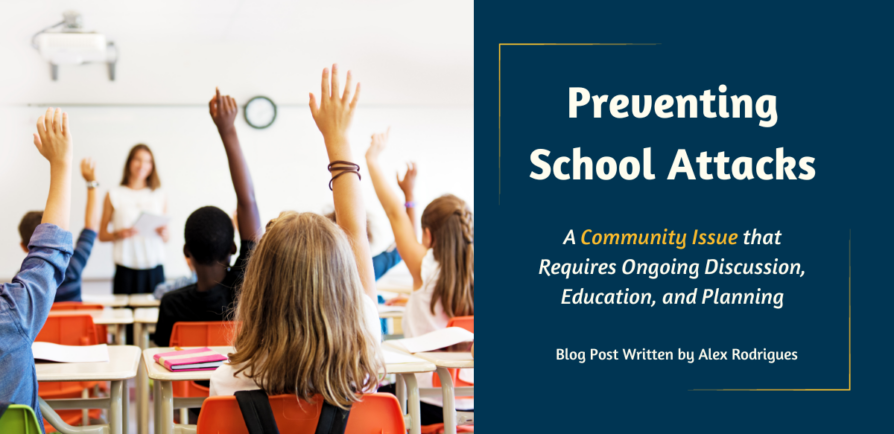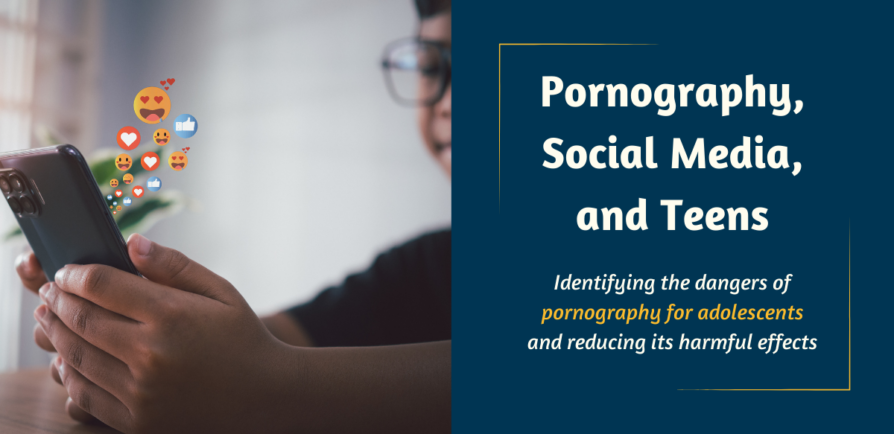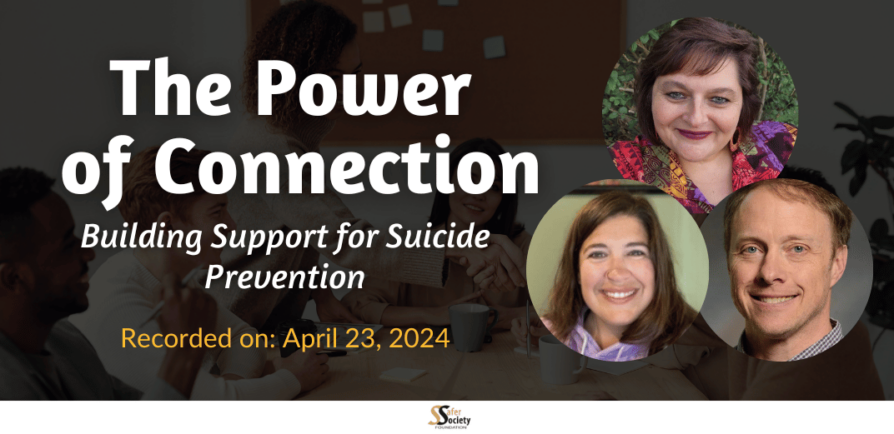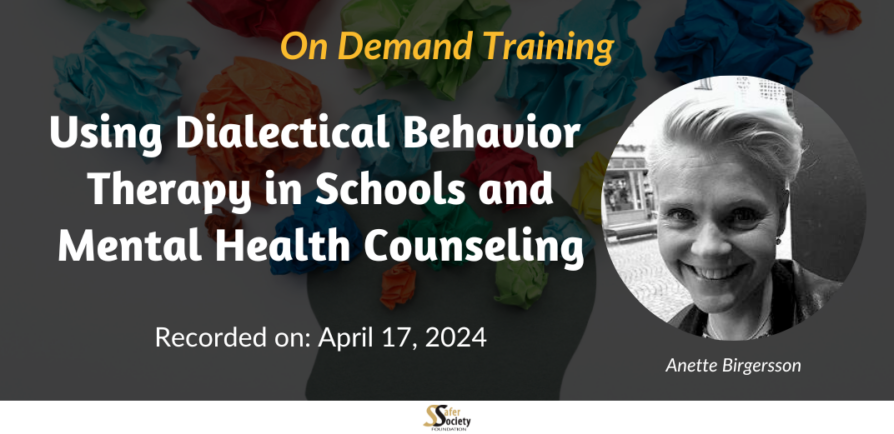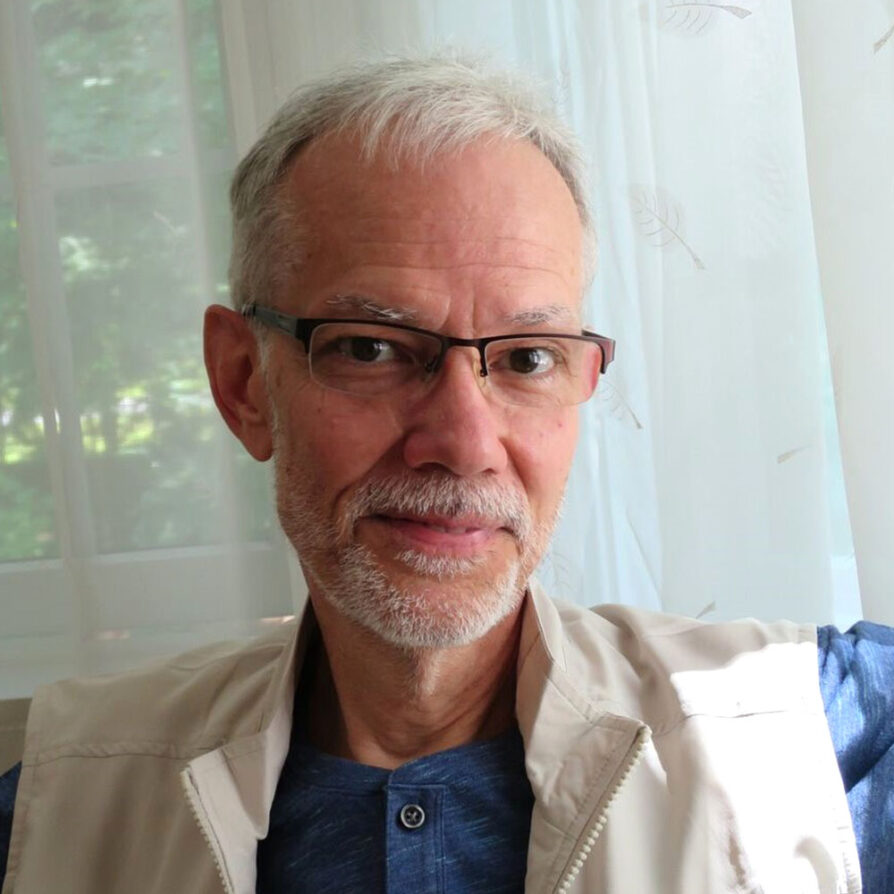The search for effective treatment has resulted in a variety of approaches: strengths-based models, offense-focused models, cognitive-behavioral approaches, insight-oriented, self-regulation models, and many more. How do clinicians determine which approach method has the best chance of having an impact on their clients?
Innovations in the Treatment of People Who Sexually Abuse
In the mid-1970s, William Marshall and his colleagues at Queen’s University began to tackle one of the biggest questions facing therapists who work with people who have sexually abused: are those who perpetrate sexual abuse less driven by their impulse to offend thanks to treatment? Do we have an effective way to deal with those who sexually traumatize their victims?
Advanced Skills for Using Dialectical Behavior Therapy with Children and Teens
This training closely examines DBT skills and offers ideas for immediate practical application with children and teens. It builds on and extends the introductory training offered the week before this. Although this training assumes that attendees have some familiarity with this method of treatment, attending the earlier training is not a prerequisite. Whereas the introductory training provides an overview of DBT skills and concepts, this advanced training examines more intensively how to use these same skills in practice.
New Year’s Resolution – 2024
If one of your New Year’s resolutions is to learn about new developments in our field and to strengthen your skillset, Safer Society can help!
In 2023, 1,842 professionals registered for Safer Society live online and on-demand trainings, in such crucial topics as evidenced-based community supervision, trauma-informed care, motivational interviewing, risk assessment strategies, self-care, and inclusive language. These trainings are designed to fulfill your professional development goals and qualify you for continuing education credits.
Preventing School Attacks: A Community Issue that Requires Ongoing Discussion, Education, and Planning
During the past year, the U.S. has experienced another tragic wave of targeted violence (TV). Over the past months, several cities have fallen victim to planned violence at schools and workplaces. As a result, the conversation surrounding school violence has re-emerged nationally. News reports routinely cast school attacks as spontaneous events by individuals who suddenly “snap.” Such depictions are inaccurate and portray tragedies like those at Columbine and Marjorie Stoneman Douglas High Schools as inevitable. The belief that school attacks are unpreventable contradicts over 20 years of research, which clearly shows that attackers do not simply break and that school violence is preventable.
Pornography, Social Media, and Teens
Adolescents have become increasingly exposed to pornography through social media, and with this comes potential dangers to their mental health. A recent Safer Society training titled “Pornography, Social Media, and Teens: What Could Go Wrong? And What Can Be Done to Make it Go Less Wrong?”—presented by Seth Wescott, LMLP and David Prescott LICSW, ATSA-F—focuses on the dangers of pornography for adolescents and how its harmful effects can be reduced.
The Power of Connection: Building Support for Suicide Prevention
Suicide is preventable. According to the American Foundation for Suicide Prevention, the suicide rate for 2021 in the USA was 14 per 100,000 individuals. In Vermont, it is the second leading cause of death for people ages 18-35. The importance of professionals keeping up to date with research and practice cannot be overstated. Kathleen Kilbourne, Kirk Postlewaite, and Cristina Maddocks of the Vermont Suicide Prevention Center are experts who disseminate information, provide training, engage legislators, and observe trends in suicide and its prevention. In this Safer Talk webinar, they outline ideas for creating a supportive environment that encourages open conversations and helps those in need find the assistance they deserve.
Using Dialectical Behavior Therapy in Schools and Mental Health Counseling
Dialectical behavior therapy (DBT) is a structured approach to helping clients learn to manage intense emotions and negotiate relationships. For these reasons, it is a natural fit for working with teens in school- and mental health-counseling. It can be used in individual and group settings, and there are many helpful resources available for its administration. This workshop provides an introduction to DBT and reviews its key principles. It offers ideas for immediate practical application with teens.
